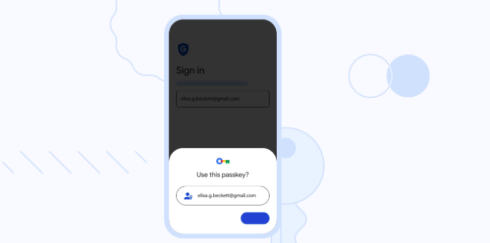
Final yr, Google introduced it was beginning to work on including assist for passkeys, which is an authentication methodology that permits customers to sign up with a fingerprint, facial recognition, or PIN code, just like the way you unlock your telephone.
At the moment the corporate is asserting that passkeys can now be used to signal into your Google Account.
“Utilizing passwords places quite a lot of accountability on customers. Selecting sturdy passwords and remembering them throughout numerous accounts could be exhausting. As well as, even essentially the most savvy customers are sometimes misled into giving them up throughout phishing makes an attempt. 2SV (2FA/MFA) helps, however once more places pressure on the person with extra, undesirable friction and nonetheless doesn’t absolutely defend in opposition to phishing assaults and focused assaults like “SIM swaps” for SMS verification. Passkeys assist deal with all these points,” Arnar Birgisson, software program engineer at Google, and Diana Okay Smetters, principal engineer at Google, wrote in a weblog publish.
While you add a passkey to your Google Account, it’s saved domestically in your gadget. Which means passkeys can’t be shared or written down like a password, so they’re much less susceptible to phishing makes an attempt or ending up within the flawed palms.
Due to their sturdy safety, Google permits you to additionally skip two-factor authentication when utilizing them.
Whereas passkeys are saved domestically, this doesn’t imply you’ll be able to solely sign up from that one gadget. Every new gadget you enroll could have its personal passkey.
You may as well sync passkeys in your personal backup service if you happen to want. For instance, you’ll be able to create a passkey in your iPhone and again up the important thing in your iCloud account, and it will likely be accessible on all of your Apple units signed into that iCloud account. This makes it much less possible that you’re locked out of your account if you lose your gadget. The corporate advises in opposition to doing this on units which are shared with different folks as they’d additionally acquire entry to your passkey.
“Whereas that may sound a bit alarming, most individuals will discover it simpler to manage entry to their units reasonably than sustaining good safety posture with passwords and having to be on fixed lookout for phishing makes an attempt,” Birgisson and Smetters wrote.

























